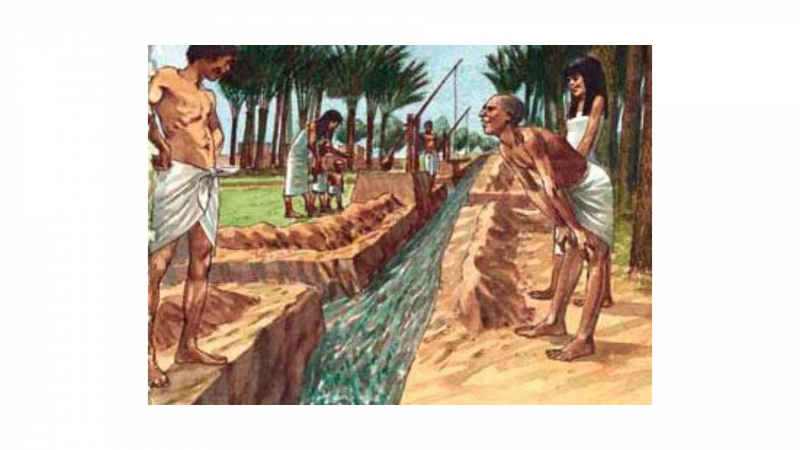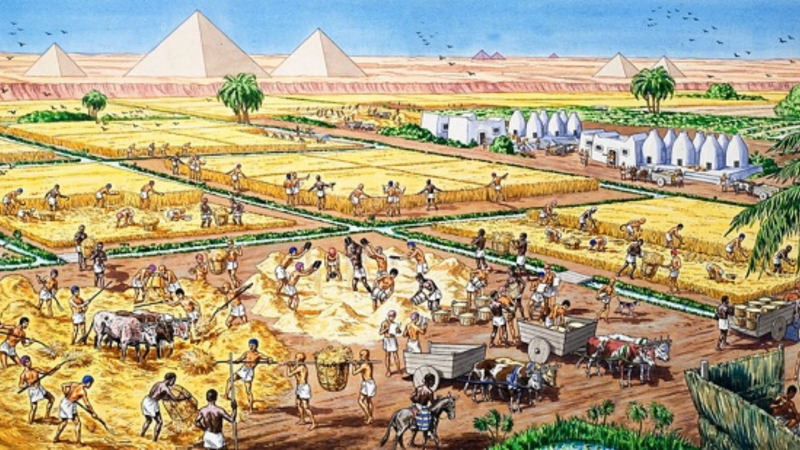Agricultural Development

Hammurabi understood the importance of having a solid agricultural foundation for an empire. This is also one of the biggest contributions of Hammurabi. Hammurabi harnessed the water from these rivers and built canals to deliver water to all areas of the kingdom, enabling farmers to create improved agricultural practices. Babylon was located in the valley of the Tigris and Euphrates rivers. The fertile soils allowed the Babylonians to effectively raise fruit, vegetables, and other crops. The Sumerians left behind a tremendously advanced agricultural infrastructure, with vast irrigation canal networks, dams, and agricultural knowledge, which the new empire, with its capital in Babylon, did not need to add much to. However, because the Euphrates and Tigris Rivers were constantly altering their courses due to their frequent and destructive floods, new feeder canals had to be dug, and new dams had to be constructed.
The digging of a canal was unquestionably beneficial for everyone because areas in lower Mesopotamia could only be farmed when they were irrigated. In addition, the Hammurabi code addressed agriculture, including the leasing and cultivation of land as well as borrowing money to engage in agriculture and repaying it. These are evident in articles 42 to article 48, which set forth various degrees of sanctions for failure or negligence.






